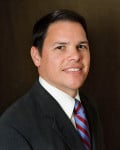What to do When a Spouse, or Loved One, Dies
sponsored by T.M. Wealth Management ![]()
Even if you’ve always handled your family’s finances, you may be overwhelmed by the number of financial matters you have to settle in the weeks or months following your loved one’s death. While you can put off some of these tasks, others require immediate attention.
This informational program is designed specifically for the financial issues facing those who are married, have recently lost a spouse or know someone who has. Some of the topics to be discussed include:
- Organizing your finances after your spouse or loved one dies
- Filing a final income tax return
- Settling an estate
- Claiming life insurance and social security benefits
About Your Presenter

Mr. Seneca is a partner with T.M. Wealth Management (www.tm-wealth.com), a boutique wealth management firm with offices in Virginia and Utah. Mr. Seneca developed his extensive finance and investment knowledge as an investment banker with Goldman Sachs and Deutsche Bank. At these two prestigious institutions, Mr. Seneca conducted due diligence and engineered complex financial valuation models for IPOs, M&A and private equity transactions. Recognizing that the same products and strategies available to corporate American on Wall Street were not being provided to the individual investor on Main Street, Mr. Seneca joined T.M. Wealth Management. The firm employs the Yale Endowment Model of portfolio construction to reduce risk and increase the potential for returns in client portfolios. Additionally, Mr. Seneca serves as an adjunct finance professor at Virginia International University and the sponsor of Cornerstones‘ financial literacy program in Reston, Virginia Mr. Seneca has a BA in economics from Brigham Young University and an MBA from Columbia Business School.
Securities and investment advisory services offered through Girard Securities Inc. member FINRA/SIPC T.M. Wealth Management is not affiliated with Girard Securities, Inc.
---
The information contained in the Knowledge Center is intended solely to provide general guidance on matters of interest for the personal use of the reader, who accepts full responsibility for its use. In no event will CST or its partners, employees or agents, be liable to you or anyone else for any decision made or action taken in reliance on the information in this Knowledge Center or for any consequential, special or similar damages, even if advised of the possibility of such damages.